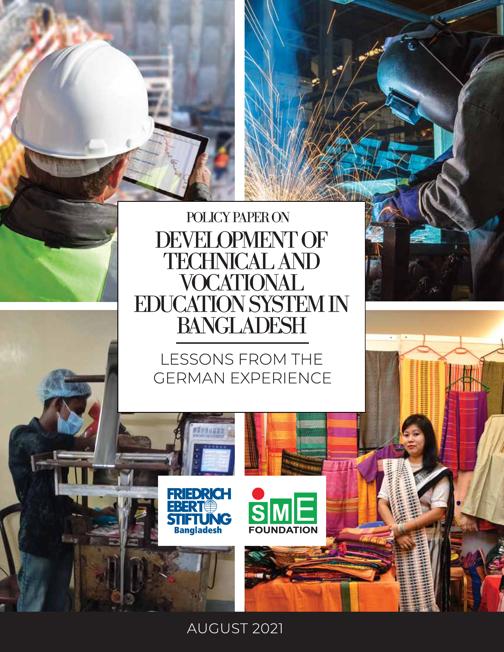Publikationen der StiftungPolicy paper on development of technical and vocational education systems in Bangladesh Titel
Titelaufnahme
- TitelPolicy paper on development of technical and vocational education systems in Bangladesh : lessons from the German experience
- Körperschaft
- Erschienen
- Umfang1 Online-Ressource (27 Seiten)
- SpracheEnglisch
- DokumenttypDruckschrift
- Schlagwörter
- Geografika
- URN
- Das Dokument ist frei verfügbar
- Nachweis
- Archiv
Small and Medium Enterprises (SME's) create opportunities for employment creation, economic growth and developing economic resilience. The most important element of SME successes is that a skilled workforce is created through technical and vocational education and training (TVET). The institutional arrangement and the approach to TVET contributed to making the required capable work force. In 2016 there were 546,947 registered training places; 517,789 or 94.7% were company-based training places, and the remaining 5.3% were extra-company training places with a cumulative enrolment of about 2.5 million trainees (BIBB, 2018). Yet, these are not enough to build a skilled Bangladeshi workforce. In addition, TVET has been suffering from an absence of an apprenticeship scheme, lack of infrastructure, low reputation and thus low demand for TVET, limited number of specialised institutions, high teacher-student ratio. Thus, lessons from the German experiences can help the Bangladeshi TVET system and especially SMEs to grow faster, as Germany is known worldwide for its innovations and successes in TVET. The policy paper has reviewed TVET plans and policies of Bangladesh, and the German TVET experience and then suggested a way forward for Bangladesh.
